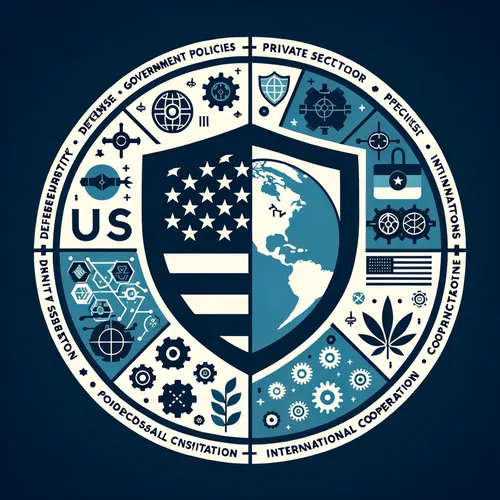Sizzling Cyber Tea: NSA's China Alert, Microsoft's Pentagon Oopsie & Trump's Tariff Grenade!
- Author
- Quiet. Please
- Published
- Fri 08 Aug 2025
- Episode Link
- https://www.spreaker.com/episode/sizzling-cyber-tea-nsa-s-china-alert-microsoft-s-pentagon-oopsie-trump-s-tariff-grenade--67305717
This is your US-China CyberPulse: Defense Updates podcast.
Listeners, Ting here and wow, has it been a week in US-China CyberPulse—strap in, it’s a ride of defensive maneuvers, tech drama, and a sprinkling of international intrigue.
We kicked off with a wild moment at Black Hat USA in Las Vegas where Bailey Bickley of the NSA’s Cybersecurity Collaboration Center basically put everyone on alert: China's hacking power now outnumbers that of the US and all allies combined. That means even the tiniest American defense contractor—yes, that little drone startup in Omaha—is suddenly a target for Beijing’s cyber squads. The NSA, previously all about intelligence gathering, is now moonlighting as a digital bodyguard for under-resourced small businesses, giving them free classified threat briefings and rolling out protective DNS services. This is a huge shift, as 80% of our defense industrial base is made up of small companies that rarely have much more than a coffee budget for cybersecurity.
Meanwhile, in the background, the Center for Strategic and International Studies, led by Dr. Victor Cha, just launched a two-year think tank blitz, diving into US-China risk reduction. The project, bankrolled by Carnegie, plans to bring together brains across economics, national security, and technology to Stategic Miscalculation Anonymous—just kidding, but only barely. Their goal is to prevent a fat-fingered email or tariff war from spiraling into something far worse.
And speaking of tariffs, President Trump just lobbed his own cyber grenade by proposing a 100% tariff on semiconductors—a move CSIS analysts warn could jack up AI server costs by up to 75% and stall about 15 to 20 new hyperscale data centers in just five years. That’s like shutting down a whole town’s worth of Silicon Valley innovation before it even starts.
Over in private sector drama, Microsoft landed in hot water after it was discovered engineers in China had access to sensitive Pentagon software systems—without the Pentagon even knowing. Congressional figures like Senator Tom Cotton are not amused and are now demanding answers, especially as the line between commercial tech and defense secrets gets blurrier by the day.
Now, international moves: China is pitching a brand new global AI cooperation group—its answer to what it calls the “exclusive” regime of the latest Trump AI Action Plan, which itself is hitting the gas on US-led global AI exports. We also saw the US and Indonesia ink a deal to streamline cross-border data flow, strengthening allies against Chinese technological sway.
In the trenches, the US Coast Guard’s brand new cybersecurity rule for ports went live—every US port now has to meet tough new cyber standards, just as the latest patch for Honeywell’s Experion PKS dropped after critical vulnerabilities were found. Meanwhile, CISA completed a proactive threat hunt on critical infrastructure and found companies still using plaintext passwords and shared admin accounts—folks, don’t be that person.
On the tech front, 2025 is absolutely the year of AI-powered cloud defense. Attackers are wielding AI as much as the defenders, and security teams are fighting bots-on-bots in real time. According to this month’s Sysdig Cloud Defense Report, if you’re not using context-aware, AI-driven detection and response, you’re already behind.
Thanks for tuning in, listeners! If you want more sharp, up-to-the-millisecond cyber news and insights, don’t forget to subscribe. This has been a quiet please production, for more check out quiet please dot ai.
For more http://www.quietplease.ai
Get the best deals https://amzn.to/3ODvOta
